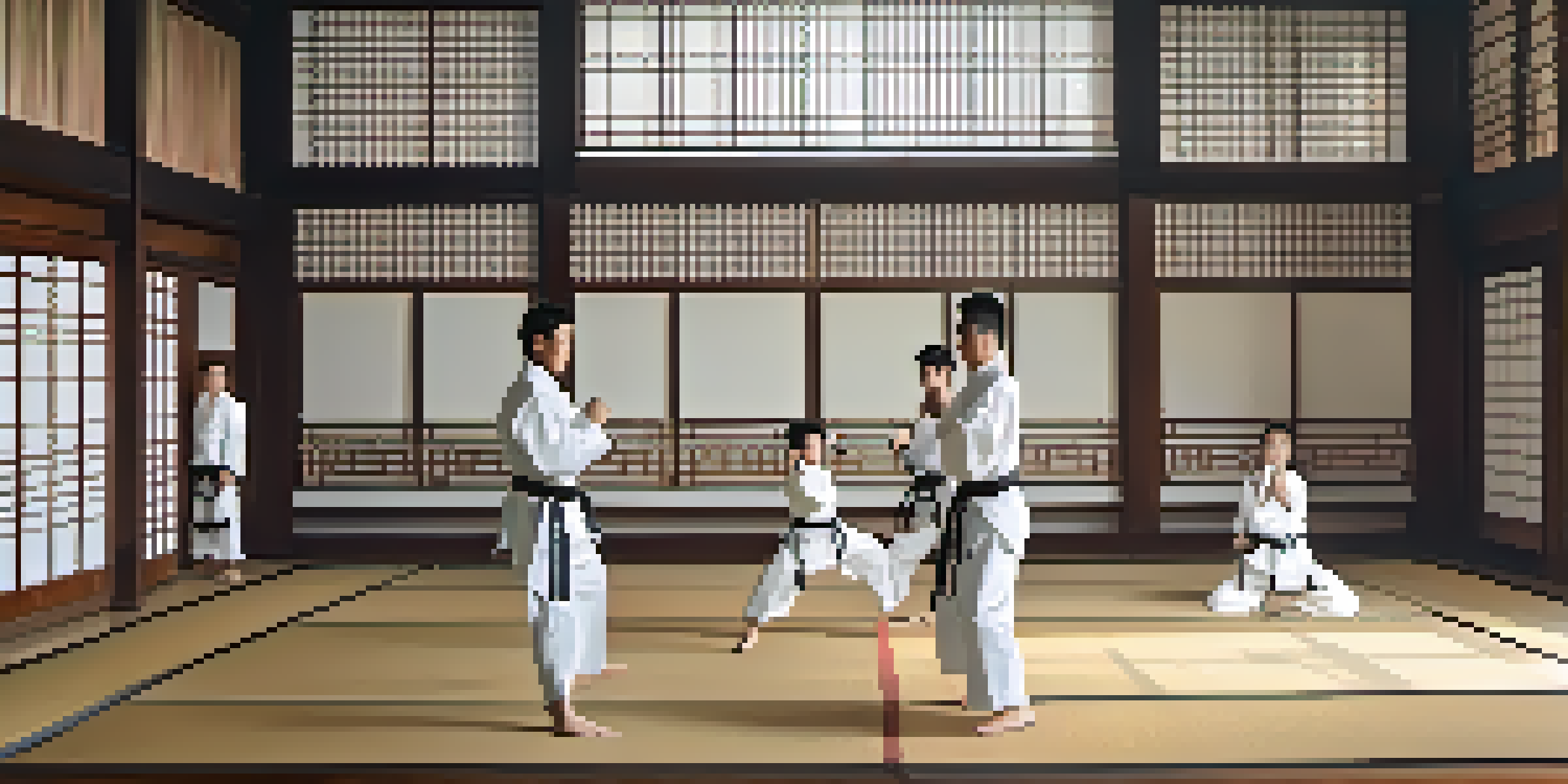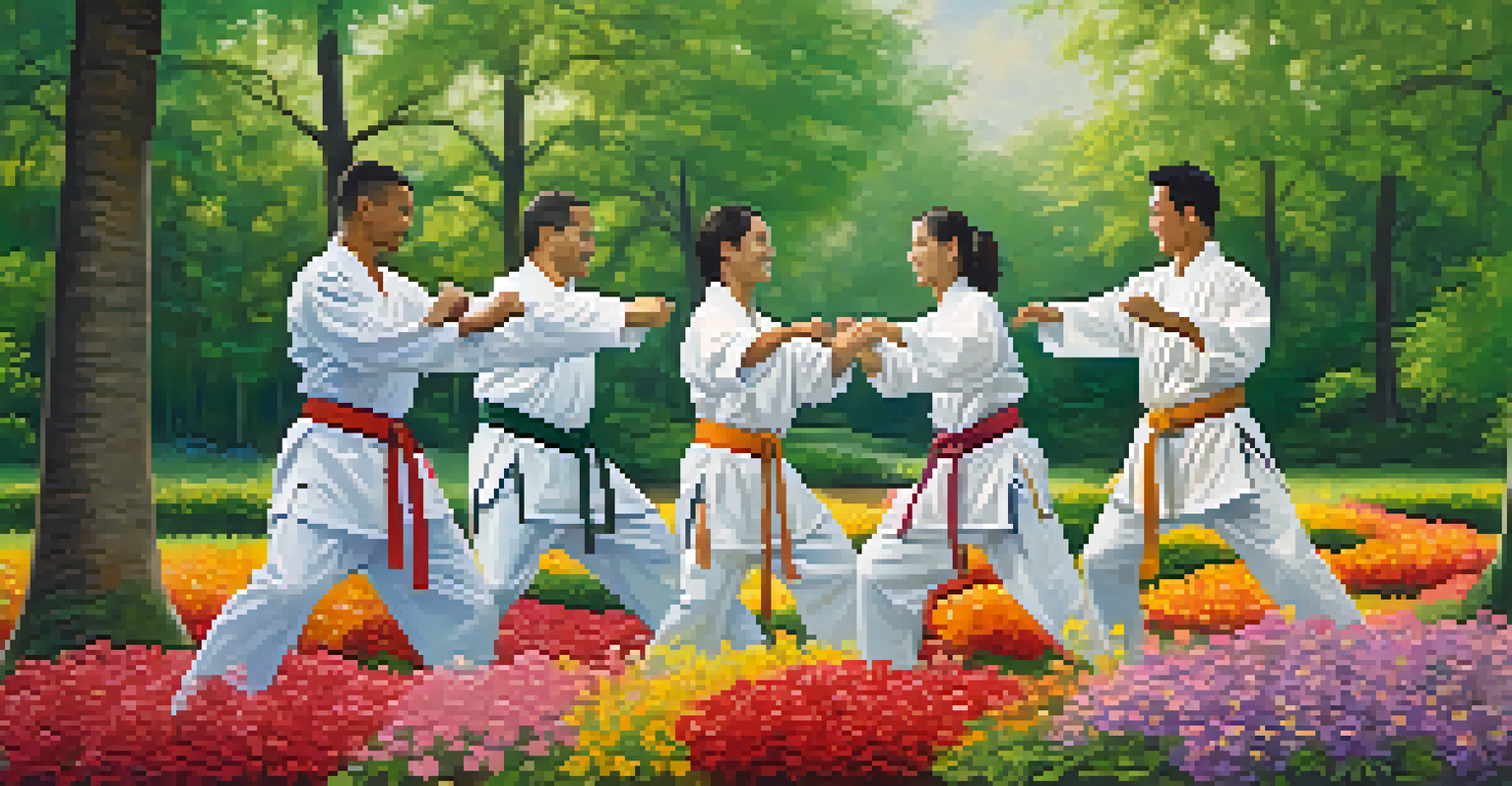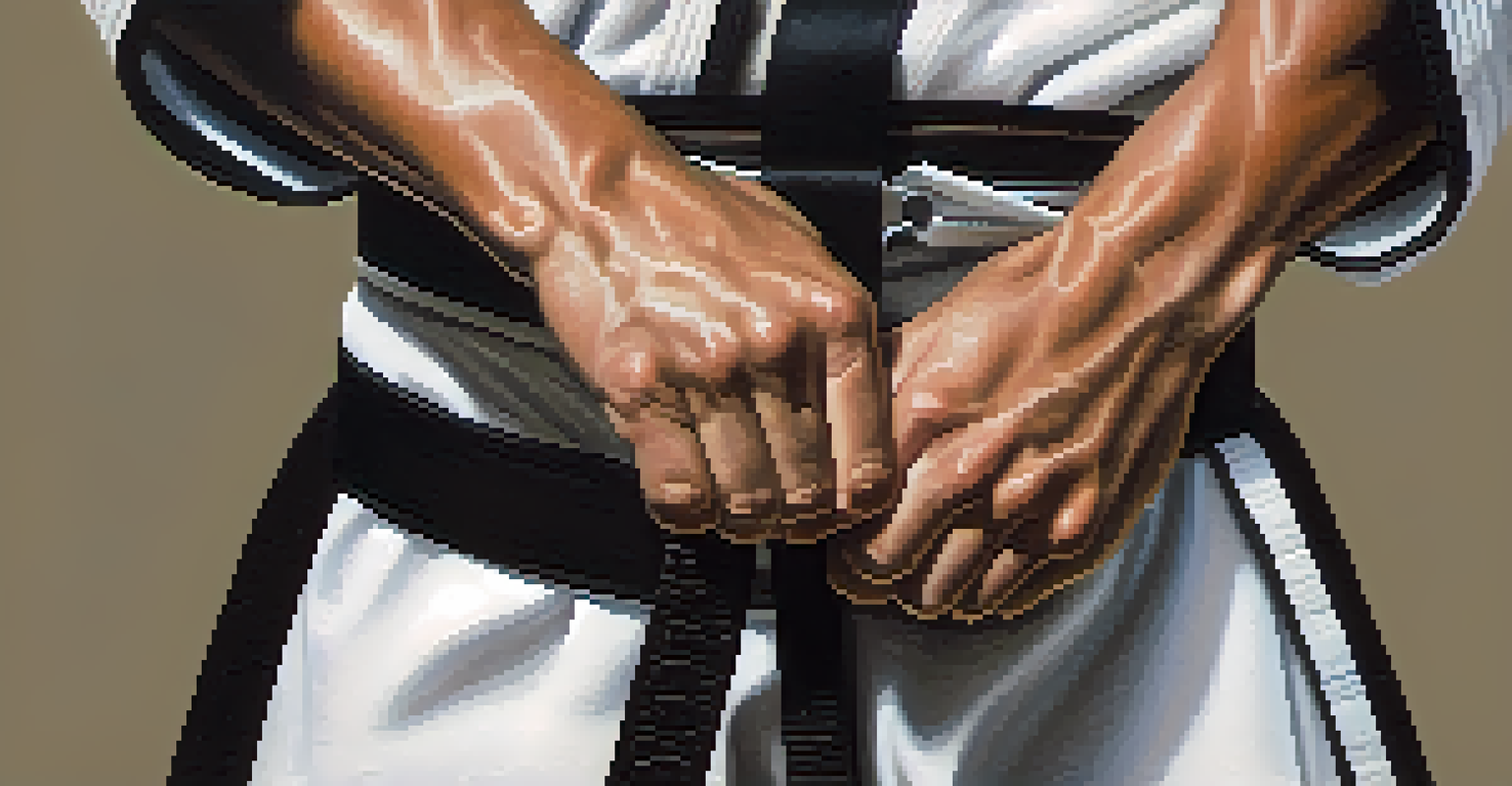Conflict Resolution Skills Developed Through Martial Arts

Understanding Conflict Resolution in Martial Arts Training
Martial arts is often perceived as a physical discipline, but it also teaches valuable life skills, particularly in conflict resolution. At its core, conflict resolution is about understanding perspectives, finding common ground, and resolving differences peacefully. Through various martial arts practices, individuals learn to manage conflict not just in the dojo but in their everyday lives.
The greatest victory is that which requires no battle.
For instance, when practicing sparring, martial artists must assess their opponent's moves and intentions quickly. This constant evaluation fosters a mindset that is keen on understanding others, a crucial skill in resolving disputes. The ability to anticipate an opponent's actions translates well into anticipating conflicts in personal and professional settings.
Moreover, martial arts emphasize respect and discipline, two essential components of effective conflict resolution. Athletes learn to respect their instructors, peers, and the art itself, which nurtures a culture of mutual respect that extends beyond the training floor into real-world interactions.
Emotional Control: A Key Component of Conflict Resolution
One of the most significant aspects of martial arts training is the development of emotional control. Practitioners often face stressful situations during training, where emotions can run high. Learning to stay calm under pressure is vital, and this skill is directly applicable when dealing with conflicts outside of martial arts.

For example, in a heated discussion, the ability to regulate emotions can prevent escalation. Martial artists train to breathe through tension, focusing on technique rather than letting emotions dictate their responses. This training translates to everyday situations, allowing individuals to approach conflicts with a level head.
Conflict Resolution Through Martial Arts
Martial arts training cultivates skills in understanding perspectives, respect, and discipline, which are essential for resolving conflicts peacefully.
Furthermore, emotional control is intrinsically linked to empathy. By managing their own emotions, martial artists can better understand the feelings of others involved in a conflict. This empathy can lead to more effective and compassionate resolutions.
Building Confidence Through Martial Arts Practice
Confidence is a crucial element in resolving conflicts successfully. Martial arts training instills a sense of self-assurance that empowers individuals to confront challenging situations head-on. As practitioners gain skills and knowledge, their confidence grows, enabling them to navigate conflicts with greater ease.
In the middle of difficulty lies opportunity.
For instance, a martial artist who has honed their skills is less likely to shy away from difficult conversations or confrontations. They approach these situations with the belief that they are equipped to handle them, much like stepping onto the mat for a sparring match. This mindset fosters resilience, which is essential in conflict resolution.
Moreover, this newfound confidence can inspire others to engage in dialogue rather than resort to aggression. When individuals exude confidence in their abilities to resolve issues, it encourages a more constructive approach to conflict among those around them.
The Role of Communication in Conflict Resolution
Effective communication is at the heart of conflict resolution, and martial arts training enhances this skill. During training sessions, practitioners learn to communicate clearly with their instructors and peers, whether through verbal instructions or non-verbal cues. This emphasis on communication fosters strong interpersonal skills that are crucial for resolving conflicts.
For example, in a sparring match, clear communication about intentions and boundaries is vital for safety and cooperation. This practice translates to everyday situations where clear communication can prevent misunderstandings and help clarify each party's perspective during a conflict.
Emotional Control Enhances Resolution
Practicing martial arts helps individuals develop emotional control, enabling them to manage stress and approach conflicts with a calm and empathetic mindset.
Moreover, martial arts promote active listening, an essential component of effective communication. Practitioners learn to listen not just to respond, but to understand, which is invaluable when trying to resolve disagreements amicably.
Problem-Solving Skills Developed Through Martial Arts
Martial arts training is fundamentally about problem-solving. Every move, technique, and sparring match presents a unique challenge that requires quick thinking and adaptability. This problem-solving mindset is directly transferable to resolving conflicts, where finding creative solutions is often necessary.
For instance, when faced with an opponent's unexpected move, a martial artist must quickly assess the situation and adjust their strategy accordingly. This ability to think on their feet can help individuals approach conflicts with an open mind, willing to explore various resolutions rather than sticking to a rigid stance.
Additionally, martial artists are often encouraged to reflect on their performance after training sessions. This reflective practice fosters critical thinking, allowing them to analyze what worked and what didn’t, which is beneficial when evaluating conflict resolution strategies.
Teamwork and Collaboration in Martial Arts
While martial arts can be an individual pursuit, many disciplines emphasize teamwork and collaboration. Practitioners often work in pairs or groups during training, which teaches them the importance of cooperation in achieving common goals. This collaborative spirit is essential in conflict resolution, as it encourages individuals to work together to find mutually beneficial solutions.
For example, practicing partner drills requires both participants to communicate effectively and support each other’s learning. This reliance on teamwork fosters a sense of community and shared responsibility, which is vital when navigating conflicts in any setting.
Teamwork Fosters Collaborative Solutions
The collaborative nature of martial arts training emphasizes communication and cooperation, essential for finding mutually beneficial solutions in conflict resolution.
Moreover, martial arts often involve group discussions and reflections, allowing practitioners to share their experiences and perspectives. This collaboration not only enhances learning but also builds relationships, making it easier to resolve conflicts within a supportive environment.
Respect and Humility: Cornerstones of Conflict Resolution
Respect and humility are foundational principles in martial arts that play a significant role in conflict resolution. Practitioners learn to respect their instructors, fellow students, and the art itself, which cultivates a mindset that values the perspectives of others. This respect is crucial when addressing conflicts, as it fosters an environment where all parties feel valued and heard.
Additionally, humility encourages individuals to recognize that they don't have all the answers. In martial arts, the journey of learning is ongoing, and acknowledging one’s limitations is essential. This mindset allows individuals to approach conflicts with an open heart and a willingness to learn from others, making resolution more attainable.

Incorporating respect and humility into conflict resolution also promotes a culture of understanding. When individuals approach disputes with these qualities, it paves the way for constructive dialogue and collaboration, leading to more effective resolutions.